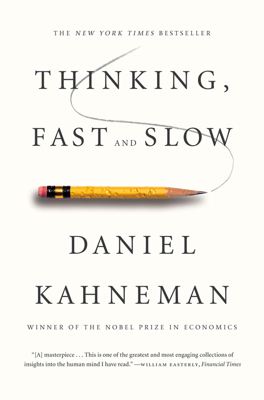Prospect Theory
Introduction and Background
Daniel Kahneman and Amos Tversky identified a fundamental flaw in Bernoulli’s utility theory—the assumption that utility is derived from final states of wealth rather than changes in wealth. They were influenced by modern psychophysics, which suggested that subjective value should be about changes rather than states. Harry Markowitz's idea that utilities should be attached to changes in wealth, not states, laid a foundation for what would become Prospect Theory.
Prospect Theory Development
Kahneman and Tversky introduced Prospect Theory, which defines outcomes in terms of gains and losses rather than final states of wealth. This transition allowed for the exploration of human behavior under conditions of risk and uncertainty, particularly highlighting how people value gains and losses differently.
Core Principles of Prospect Theory
Reference Points: Outcomes are evaluated relative to a neutral reference point, rather than absolute states of wealth. This can be the status quo or expected outcomes, shaping whether outcomes are perceived as gains or losses.
Diminishing Sensitivity: Similar to sensory perception where the response to a stimulus diminishes with intensity, the impact of each additional unit of gain or loss decreases as the quantity increases.
Loss Aversion: Losses impact individuals more significantly than equivalent gains. This asymmetry indicates that the emotional impact of losing is greater than that of winning an equivalent amount.
Behavioral Examples and Implications
Various problems and examples illustrate key behaviors predicted by Prospect Theory:
- Risk Aversion and Risk Seeking: People exhibit risk aversion when facing a choice between a certain gain and a larger potential gain with some chance of obtaining nothing. Conversely, they exhibit risk seeking in scenarios involving sure losses versus potential larger losses, driven by the impact of loss aversion and diminishing sensitivity.
- Mixed Gambles: Individuals often reject mixed gambles (where both gain and loss are possible) because the potential loss has a greater emotional impact compared to the potential gain.
Critical Examination and Limitations
While Prospect Theory advanced understanding beyond Bernoulli’s theory, it has its limitations:
Reference Dependence and Disappointment: The theory struggles with situations where the reference point changes dramatically, such as scenarios where the outcome significantly deviates from high expectations, leading to disappointment which Prospect Theory fails to adequately capture.
Exclusion of Emotions like Regret: Prospect Theory does not account for emotions such as regret and disappointment that influence decisions, where outcomes are influenced not just by what is chosen but also by what could have been chosen.
Comparison and Impact on Economic Theory
Despite its insights, Prospect Theory is often omitted from introductory economic texts due to its complexity and challenge to the rational agent model foundational to economic theory. Its introduction could complicate the learning process and detract from basic economic principles that assume rational decision-making.
Conclusion
Prospect Theory represents a significant advancement in behavioral economics by incorporating psychological realism into economic decision-making models. It recognizes human tendencies to evaluate choices relative to reference points with heightened sensitivity to losses over gains. However, its application in economic theory is limited by its more complex assumptions, which challenge the foundational rational agent model.
